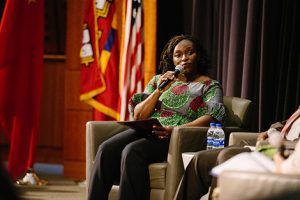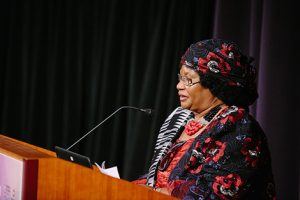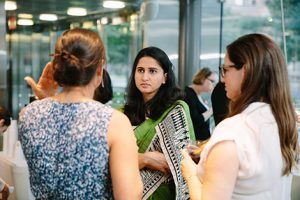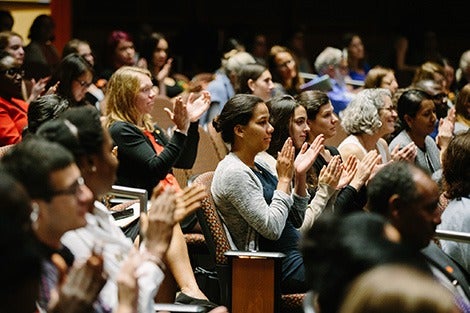September 25, 2018—Women’s health researchers and advocates recently gathered for a symposium celebrating the 10th anniversary of Harvard T.H. Chan School of Public Health’s Maternal Health Task Force, an initiative focused on reducing maternal mortality and morbidity around the world.
The event, held September 17, 2018 at the Joseph B. Martin Center, included the inaugural Maternal Health Visionary Awards.
Inequity in the U.S. and worldwide

While maternal deaths have declined over the past decade, the world is not on track to reach the target of less than 70 per 100,000 births by 2030 set by the United Nations’ Sustainable Development Goals. Mothers around the world continue to die from age-old threats such as postpartum hemorrhage, and, increasingly, from chronic disease.
More than half of all maternal deaths still occur in sub-Saharan Africa, and maternal deaths are on the rise in the United States, particularly among black women. Inequity in maternal mortality “is an issue we must urgently tackle in the U.S. and abroad,” Dean Michelle Williams said in her opening remarks at the symposium. “It is an issue we cannot and must not ignore.”

One of the key messages that speakers at the event highlighted was that women are demanding—and deserve—respectful, dignified childbirth, and providers and policymakers need to listen.
Reporter Nina Martin of ProPublica, whose award-winning series Lost Mothers boosted awareness of maternal mortality in the United States, moderated one of the panels. She said that in the U.S., the health of mothers is often given less consideration than the health of the baby, mothers’ health concerns are often dismissed, and they tend to be sent home without adequate information about postpartum risks and complications.
Neel Shah is working to address these concerns in his roles as an obstetrician-gynecologist at Beth Israel Deaconess Medical Center and director of the Delivery Decisions Initiative at Ariadne Labs. He has piloted a “huddle” method for hospital delivery teams which brings together all staff involved in a mother’s care to discuss her progress. Delivering a baby is an “artisanal craft,” he said, meaning that birth is different for every mother. Women need to feel like participants in their own care, he said.

The question of what women want from their childbirth experience launched Associate Professor of Global Health Margaret Kruk’s career, she said. Speaking to poor women in rural Tanzania first led her to conclude that health systems may not be providing the quality care that people want. Through asking why women weren’t returning to their local health clinics to give birth, Kruk learned that their decisions weren’t primarily guided by cost or location. “What those women demanded was competent providers and dignified care.”

Photos: Studio Nouveau
